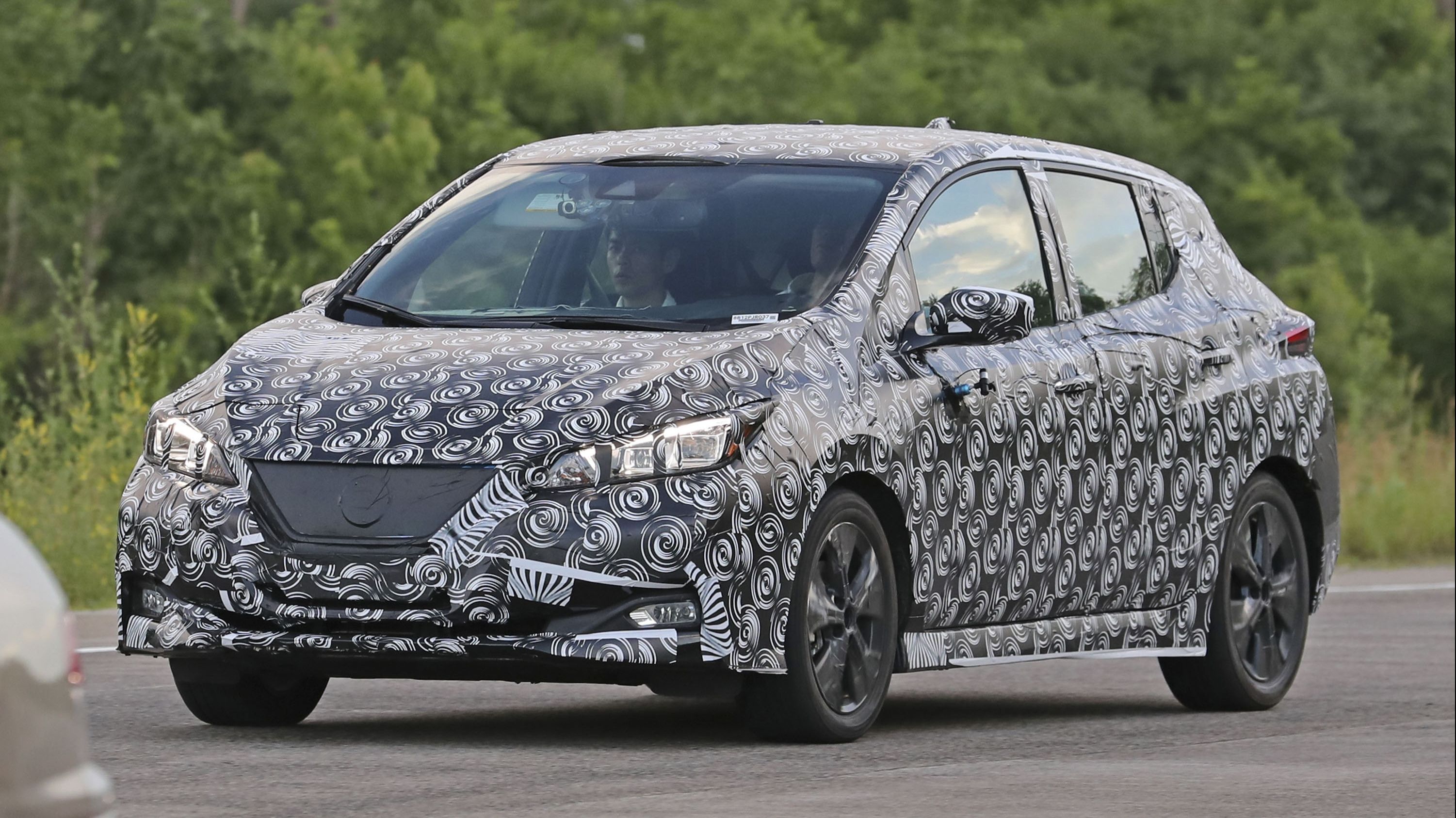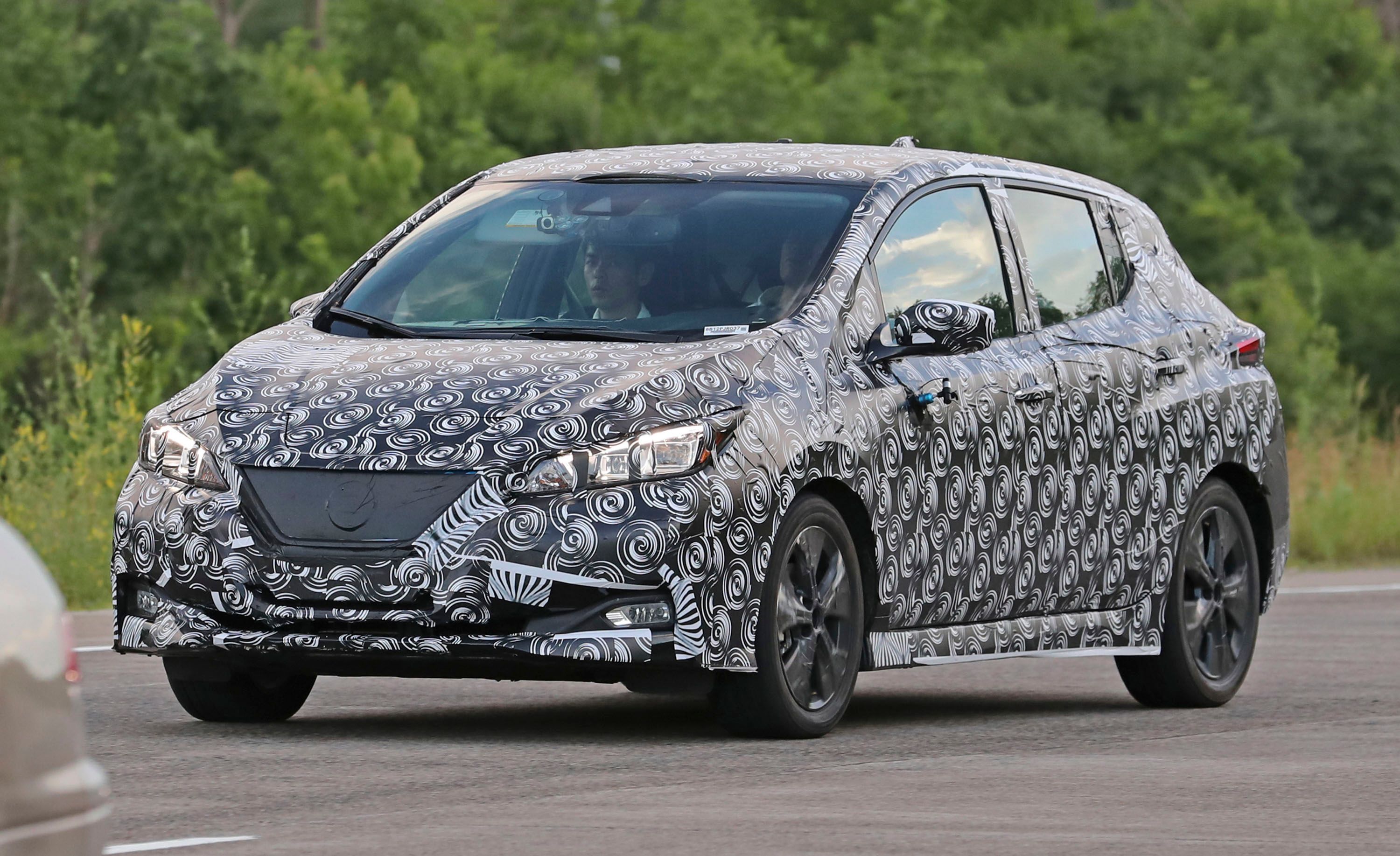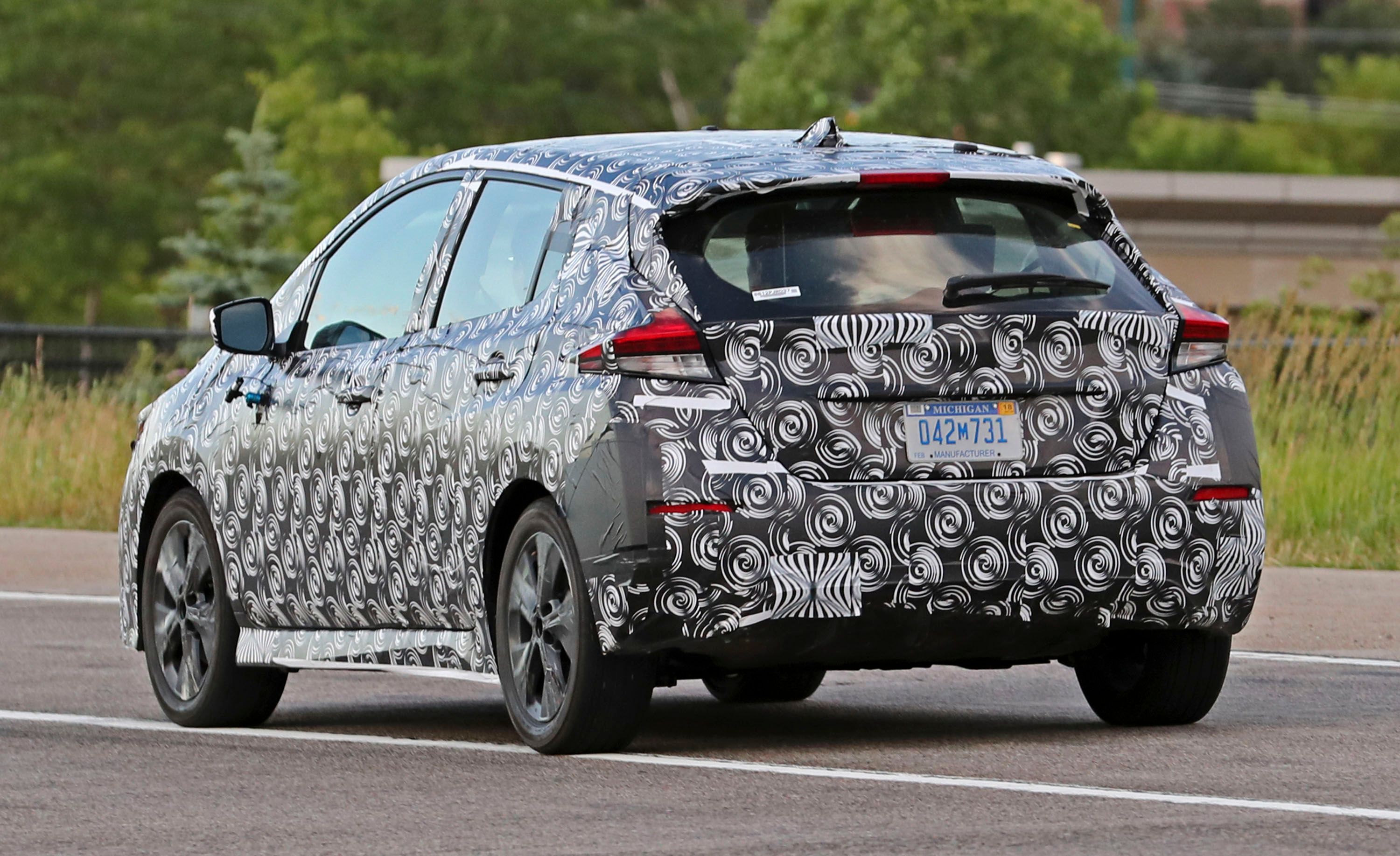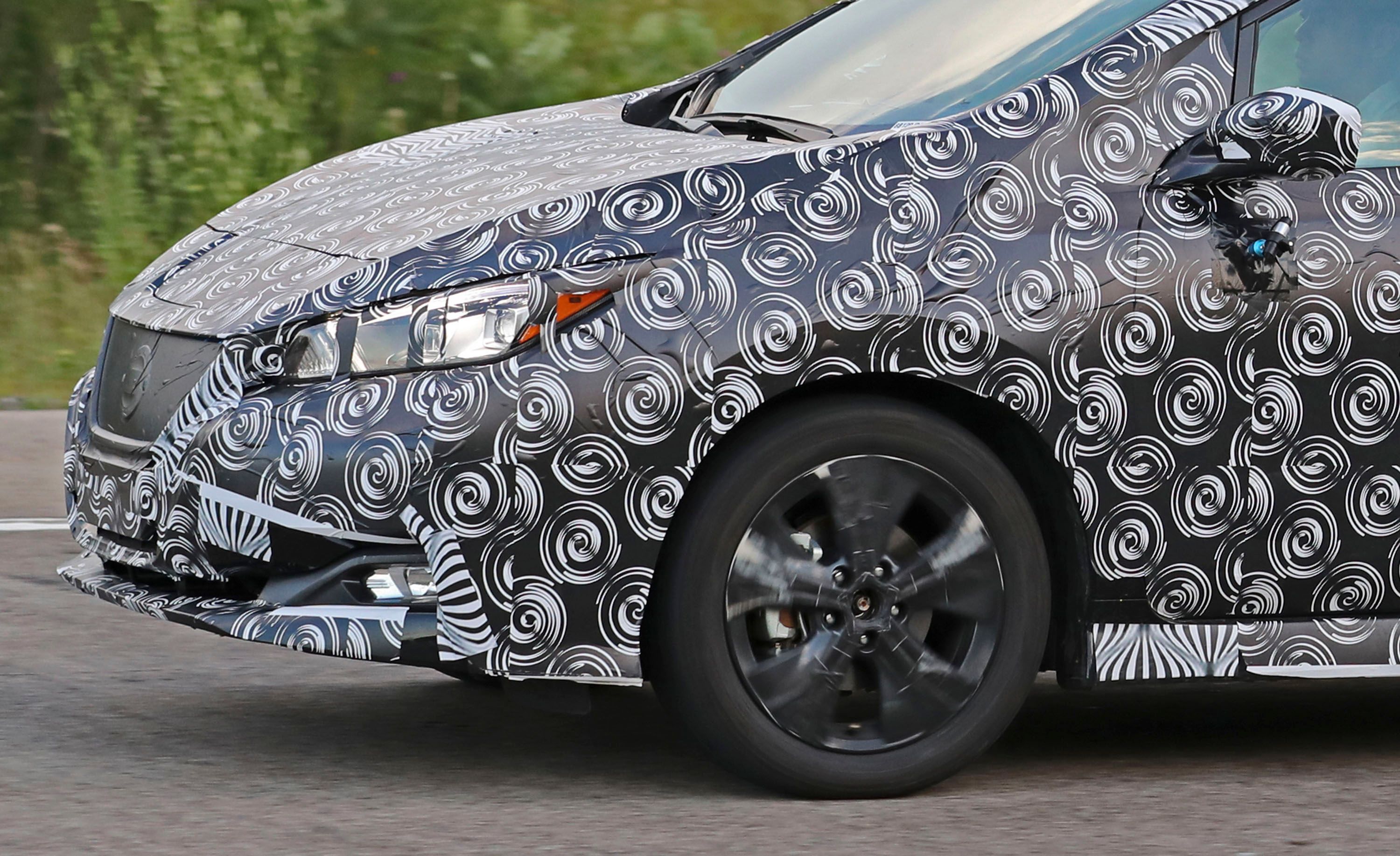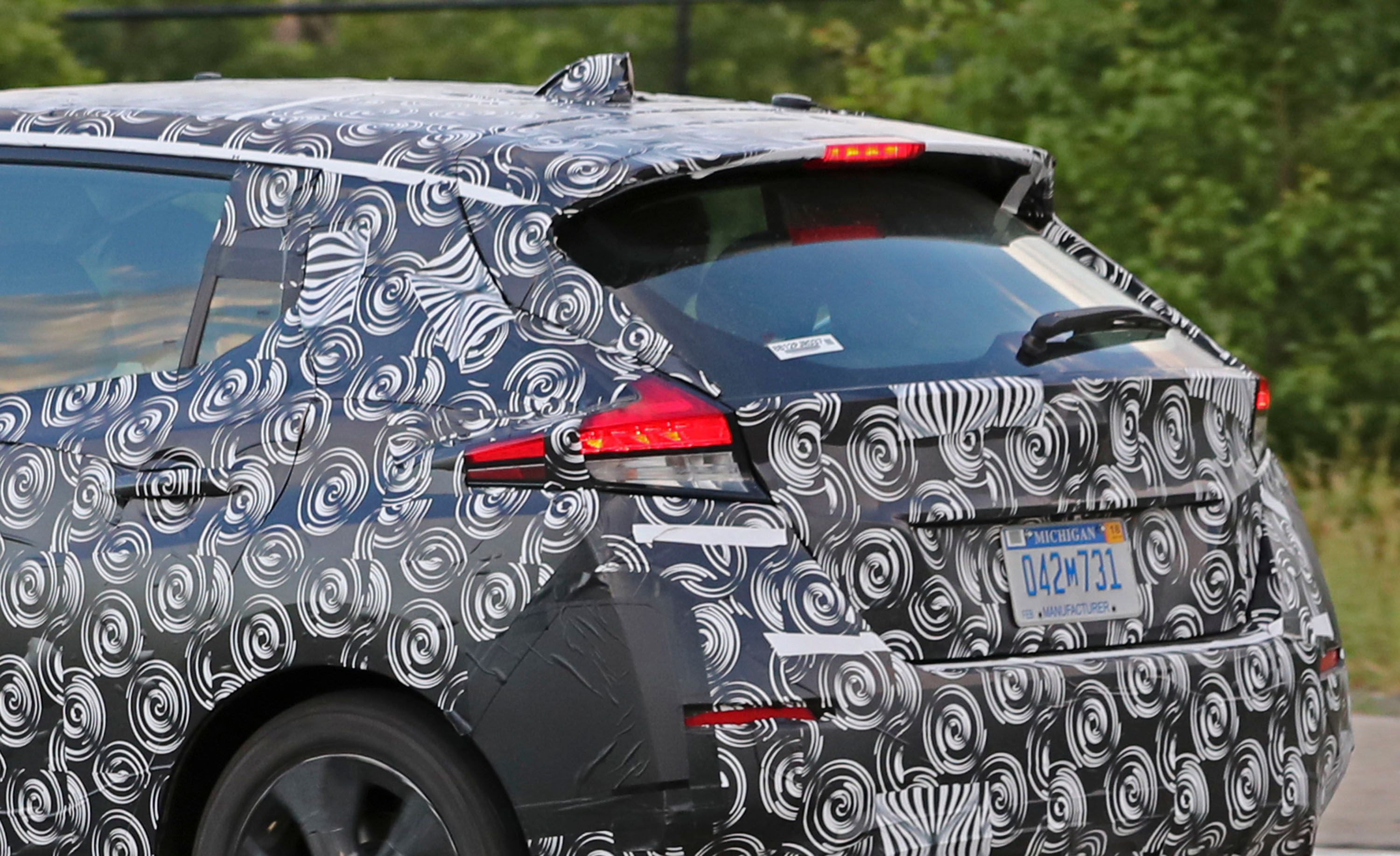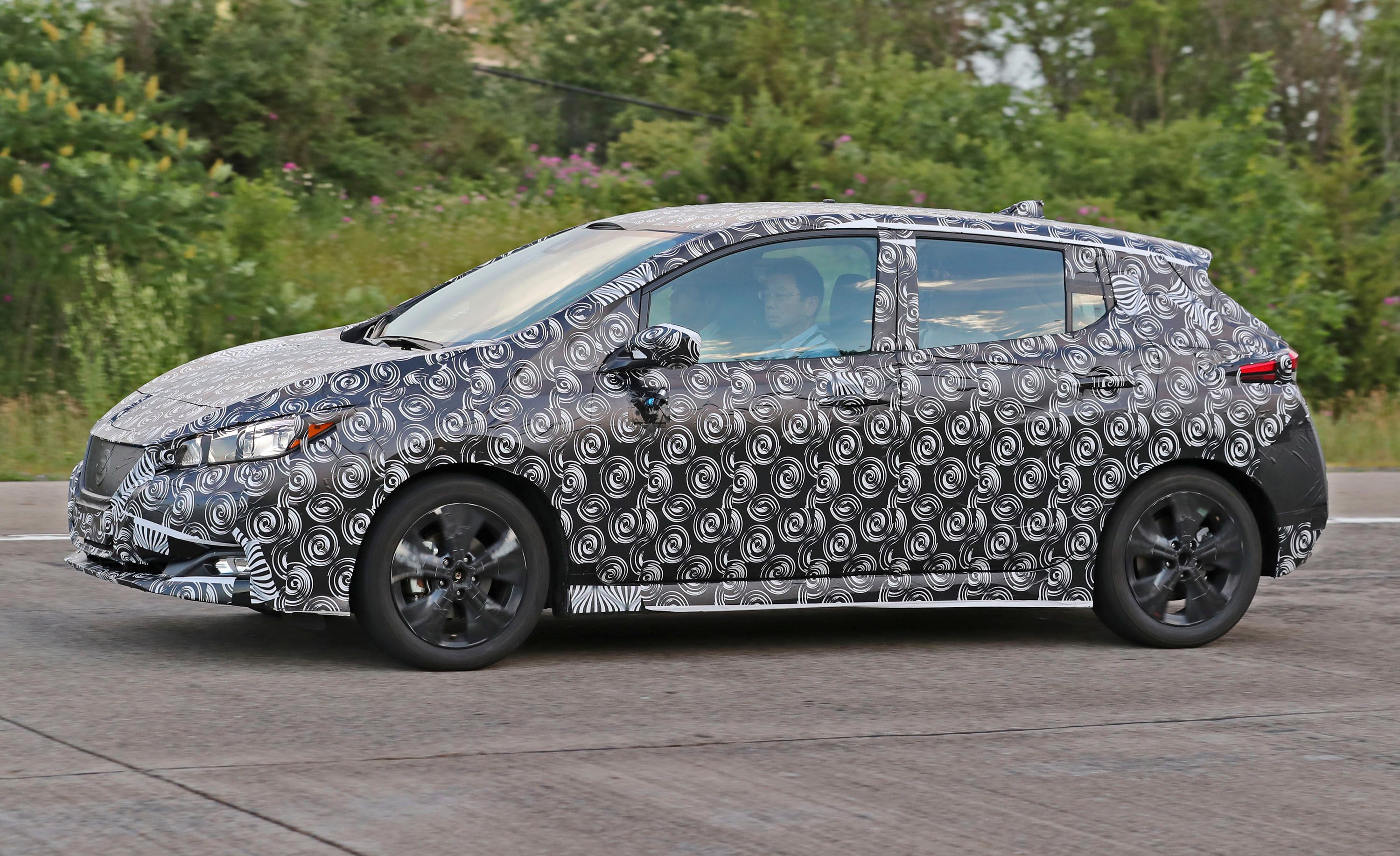Between failed attempts to troll Tesla, and the range anxiety associated with electric cars, the Nissan Leaf really doesn’t receive the credit it deserves. I mean, don’t get me wrong; it is kind of ugly and looks like the bug-eyed bastard child that would result from a Lotus banging an early Honda Civic hatchback, but that’s ok. In the end, the Nissan Leaf has become the world’s best-selling, highway-capable electric car, with more than a quarter-million examples sold in the time it’s been on the market. So, despite all the negativity it gets, it really is an iconic car. And, that icon is about to go through a generational shift that will bring it up to speed and ready to compete with cars like the Tesla Model 3 and Chevy Bolt. As of now, we have almost no idea of what it will look like outside of a teaser image of the headlight that Nissan released a few months ago, but Nissan has just announced that it will be one of the first models to get its new ProPilot driver-assist feature.
Details are scant as of this writing, and Nissan has yet to even announce a rough timeframe for the next-gen Leaf’s arrival, but if you want an idea of how the ProPilot system works, you can look back to the Piloted Drive 1.0 Concept from 2015, which pretty much handled autonomous driving in heavy highway traffic. That’s pretty much what the next-gen Leaf will be able to accomplish as well. It should function similarly to that of Tesla’s AutoPilot, GM’s SuperCruise, and Audi’s traffic-jam assist feature. The question is whether or not you’ll feel like you’re being driven by a “skilled driver” as Nissan described it when debuting that aforementioned concept. Well, let’s take a look at the short video Nissan released and see what it has to say today.
How Good is It?
It’s a very short video, but Nissan seems to have something promising here, and it should probably put at least a bit of fear into the minds of the decisions makers over at GM and Tesla. There’s no word as to whether or not the next-gen Leaf will be able to merge on or off the highway, but it should be able to maintain itself in a single lane while accelerating and braking as needed to take the effort out of your hands in those pesky traffic jams. The video does depict the Leaf taking an exit behind another car, so it’s quite possible that the system will be able to handle some highway interchanges at some point.
Nissan hasn’t gone so far as to tell us just what kind of hardware it is using to make this semi-autonomous tech work, but the last Piloted Drive Concept was equipped with 12 cameras, five radar sensors, four laser scanners, and a few ultrasonic sensors. If I had to guess, I would say more advanced versions of this technology will probably be hidden under the skin of the next-gen Leaf, but there’s something more important in play here. See, Nissan will be able to use data recorded from the next-gen leaf and its semi-autonomous technology to improve its upcoming, fully-autonomous system, which should make its way into Nissan’s cars by 2023 – that’s just six short years away, but technology can advance a lot in that period of time as well. So, the ProPilot software in the next-gen Leaf is the first stage of a few in the automakers plan to bring autonomous cars to the masses. The real question, however, is whether or not Nissan will bring its fully autonomous tech to customers directly or if it’ll follow in Ford’s footsteps when it launches its self-driving cars solely for ride-sharing services in 2021. For that, we’ll just have to wait, but something tells me Nissan isn’t going to fall behind the rest of the big players in the game.
For now, there’s no date set in stone for the next-gen Leaf’s debut, with the official word from Nissan being that it’s “coming soon.” With that in mind, Nissan will likely debut the next-gen Leaf later this year with either SEMA or the Los Angeles Auto Show being the most likely candidates for show appearances before it goes on sale as a 2018 model. Then again, Nissan could host its own event this summer or fall to debut the new Lead as well, so it’s really up in the air at this point. The current Leaf is powered by a subpar-in-this-market 30 kWh battery that’s good for 107 miles worth of range on a full charge. Of course, this wasn’t always subpar, but now that other automakers have jumped into the all-electric game, the Leaf is in dire need of replacement. There’s no word on how big of a battery the next-gen Leaf will get, but the word is that it’ll offer up some 200 miles of range per charge, which would point to a battery size around 60 kWh or so, depending on the curb weight of the car itself. Based on recent spy shots that we have received, it will also be much more attractive and may even grow a bit. It will still maintain the hatchback look, but it will lose those bug-eyed headlights and will look much more modern than the current model.
Check back soon for our speculative review based on the spy shots you've seen in this article.

